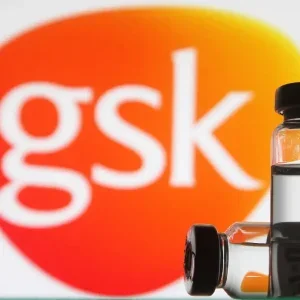
AstraZeneca’s Tagrisso (osimertinib) has received the US Food and Drug Administration (FDA) approval for adults with unresectable Stage 3 epidermal growth factor receptor-mutated (EGFRm) non-small cell lung cancer (NSCLC).
The approval applies to patients whose disease did not progress after platinum-based chemoradiation therapy.
Tagrisso is specifically for those with exon 19 deletions or exon 21 (L858R) mutations, as confirmed by an FDA-approved test.
Osimertinib is a third-generation, irreversible EGFR tyrosine kinase inhibitor (TKI).
The FDA approved this after granting Priority Review based on data from the LAURA Phase 3 trial of 216 patients.
Progression-free survival (PFS) was defined as the primary endpoint. The trial continues to evaluate the secondary endpoint of overall survival (OS).
According to the results, Tagrisso demonstrated an 84% reduction in the risk of disease progression or death compared to placebo.
Patients treated with EGFR TKI had a median PFS of 39.1 months, compared to 5.6 months for those on placebo. OS data is still maturing.
The safety and tolerability of Tagrisso in the LAURA trial aligned with its known profile, with no new safety concerns identified.
AstraZeneca oncology business unit executive vice president Dave Fredrickson said: “The approval of Tagrisso for patients with Stage 3, unresectable EGFR-mutated non-small cell lung cancer addresses a critical need for patients with these mutations who have never had the option of targeted therapy before.”
Tagrisso is approved for EGFR-mutated patients as a first-line treatment in metastatic cases, both as a monotherapy and combined with chemotherapy. It is also approved as an adjuvant treatment for early-stage disease.
Currently, osimertinib is under review by regulatory authorities in various countries for this indication.
AstraZeneca is also exploring its use in multiple stages of EGFR-mutated NSCLC.
The pharma major is also investigating Tagrisso in the NeoADAURA and ADAURA2 Phase 3 trials.
Furthermore, AstraZeneca is engaged in the SAVANNAH and ORCHARD Phase 2 trials and the SAFFRON Phase 3 trial, which are testing osimertinib in combination with Orpathys.
In a separate development, AstraZeneca has unveiled its plans to invest $18m in Immunai to utilise its artificial intelligence (AI) immune system model for cancer drug trials.
Immunai uses single-cell genomics and machine learning for therapeutic development.
The partnership aims to enhance clinical decision-making, including dose selection and biomarker identification.
AstraZeneca has the option to expand the collaboration in the future.






